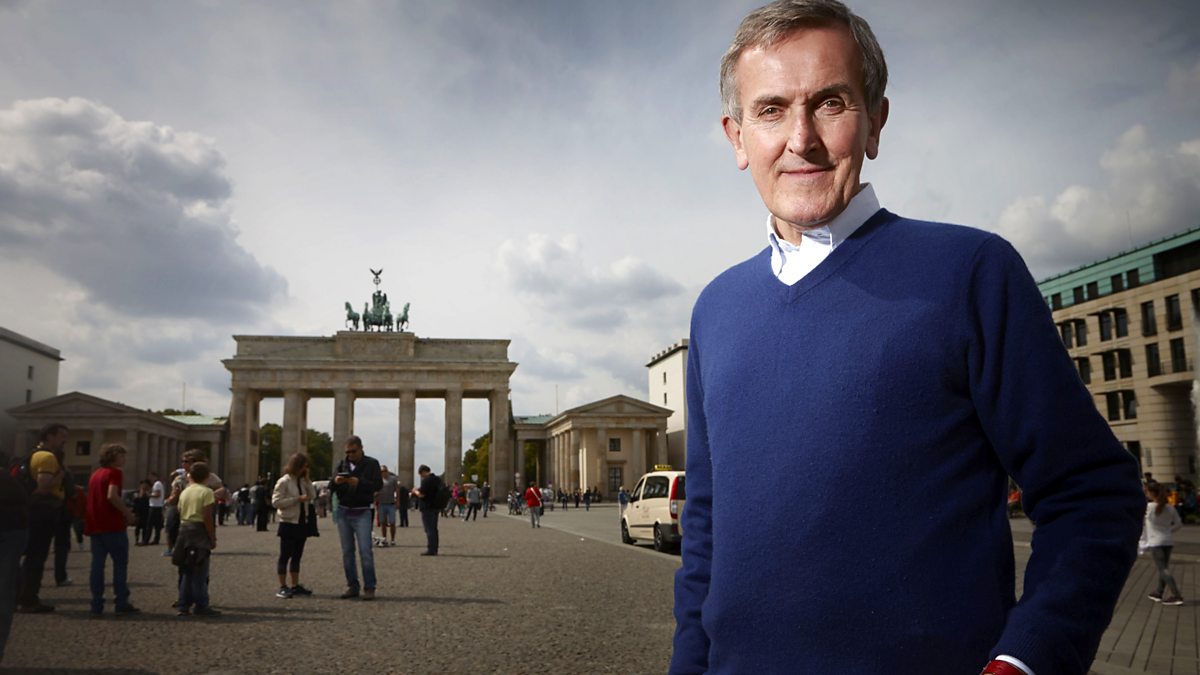British Museum/R4 exhibition/series on German history
Collapse
X
-
This series started on R4 yesterday:
The 15-minute programmes appear to be on every weekday, presumably for 6 weeks. I found the first two episodes well-written and sometimes illuminating, though so far principally about C20 German history. Focussing on particular artefacts, the series necessarily comes across as a kind of "spotlight" history rather than any kind of chronological narrative, though none the worse for that. I hope that MacGregor will look at items that reveal more of Germany's pre-C20 history and also the differences between the various German states and regions.
Comment
-
-
Three interesting letters in today's Guardian commenting on MacGregor's views on the role of the GDR (the former East Germany) and culture.
For exampletwo of the greatest theatre men of the 20th century, Bertolt Brecht and the Austrian opera director Walter Felsenstein, worked and produced some of their best works there and were supported and heavily subsidised by the government
Comment
-
-
Thanks for the link. I also heard the programme. I can reminisce ...... After my German degree I did a PGCE teaching qualification at York University. In 1971, I went to a talk in the Music Dept by Fritz Hennenberg on Brecht and his Music. Knowing about a link between York and Leipzig Universities and the possibility of getting a one year Lektor's job over there through this link, some of us chatted to him afterwards. He worked with the Gewandhaus and told us a lot about music in Leipzig. His wife, unable to travel with him to the West, was a leading vocal interpreter of Weill, Dessau and Eisler. I decided to take the plunge and apply for a post. Since none of their students could visit an English-speaking country to practise the language, the universities were keen to import English native speakers to give their English courses some kind of credibility. I was not a socialist but having spent a year in West Germany was just curious to find out about "the other half" for myself and also investigate the Leipzig music scene.Originally posted by kernelbogey View PostThree interesting letters in today's Guardian commenting on MacGregor's views on the role of the GDR (the former East Germany) and culture.
I am also sometimes dismayed by the over-simplified and stereotypical references to the GDR. The mendacity of state propaganda was obvious to all, since there was free access to West German TV and Radio. People had to put up with what history had dealt them and if you wanted to get on you had to pay lip service to the official state ideology. As one of those letters points out: "most people lived their lives with little or no relations or connection with the state security services." I met up with Mr Hennenberg in Leipzig and saw him quite often. I attended many performances in the Gewandhaus, Thomaskirche and Opera House (including the GDR's momentous first Parsifal, a concert performance with Rene Kollo under Herbert Kegel). When Roswitha sang at a Prom in 1975 her husband asked me to help her out in London since she had little English and he was forbidden from travelling with her. (It was fascinating for me as a mere punter and non-musician to attend the rehearsals at Maida Vale, go backstage and even attend the post-concert party). He's still going strong, now over 80. I have never forgotten him pointing out that, having been born in 1932, he had only lived under dictatorship. He doesn't know it, but he was quite possibly instrumental in changing my life, because he helped me to decide to go to Leipzig, which is where I met the woman who became, and still is, wife. That's another story ....
Comment
-
-
I hadn't read the article linked to the radio series until I saw the link in one of the letters. Probably any overview of a country's history will provoke dissenting views and it is a personal view from Neil MacGregor. Perhaps the letters overstate the positive aspects of the GDR. After all, whether or not Brecht and Felsenstein - and other artists - received extensive state support, that state was still totalitarian and prohibited open dissent. And the comment that "most people lived their lives with little or no relations or connection with the state security services" is surely somewhat specious, because the Stasi kept files on vast numbers of the population, as was discovered after the collapse of the regime.
I visited the GDR in 1988 and managed to see Schreier perform Die Schöne Müllerin in the recently restored Semperoper (I also picked up an LP of Peter Rösel playing Busoni arrangements in a Leipzig record shop). There was no evidence to me then of any crack in the solidity of the regime, but I'm not very observant.
Anyway as I said before, I hope MacGregor spends some time on less well known aspects of German history, so much having already been written about the C20.
PS: Incidentally, I haven't read any of Christa Wolf's books. Is Der geteilte Himmel (or any other of her works) to be recommended?
Comment
-


Comment